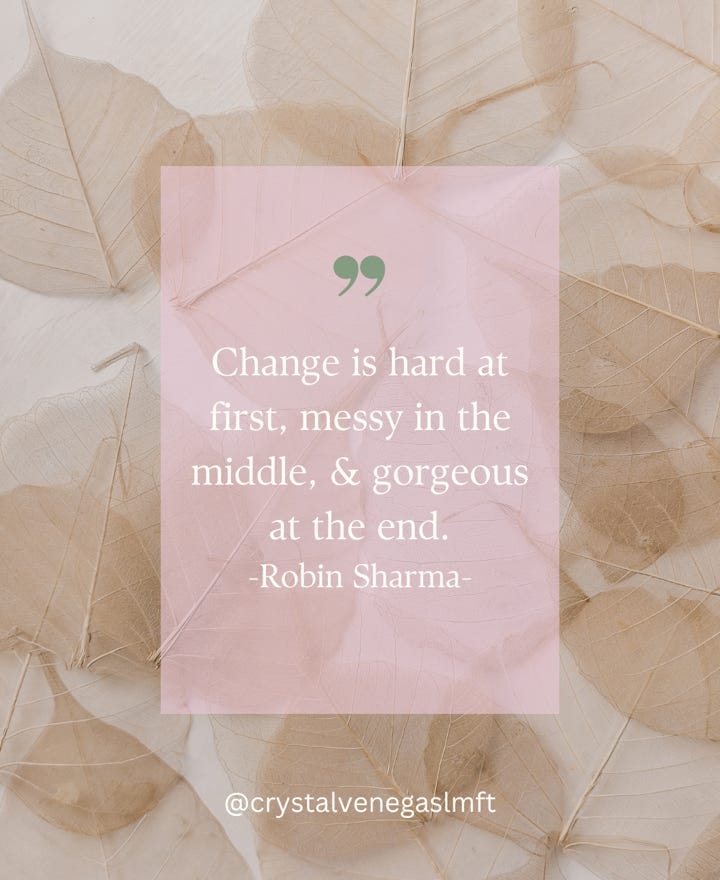
Welcome to the beginning of your healing journey! Taking the first step towards therapy can be both nerve-wracking and empowering. If you're feeling a mix of emotions about your upcoming first therapy session, know that you're not alone. In fact, many people experience similar feelings of uncertainty and anticipation as they embark on this path of self-discovery and growth. As someone who has had several first sessions with an array of therapists starting from a fairly young age, I understand the importance of feeling comfortable, prepared, and well informed before your first session. In this blog, we'll delve into what you can expect during your initial therapy appointment, as well as some tips on how to make the most out of the experience.
First and foremost, it's essential to recognize that every therapy session is unique to the individual and their specific needs. However, there are some common elements that you can expect to encounter during your first session:
If you took some time to research a few therapists prior to scheduling your first session with one, you may already have some background information about your therapist’s qualifications and approach to therapy from their website or social media accounts. If not, this is an opportunity for you to get to know your therapist and start building a sense of trust and rapport with them. Ask any questions that you may have in regards to their therapeutic style, trainings or experience with your particular area of concern, or the process of therapy; all therapists should be willing to spend some time addressing this with you.
Next, your therapist will likely ask you to share some information about yourself, including your reasons for seeking therapy and any specific goals or concerns you may have. This is your chance to open up and be honest about what's been weighing on your mind and heart. Remember, therapy is a judgment-free zone, and your therapist is there to support you unconditionally. As you share your story, your therapist may ask questions to gain a better understanding of your experiences and how they have shaped your thoughts, feelings, and behaviors. They may also provide validation and empathy as you navigate through difficult emotions and memories. If you’re not quite ready to answer any of the questions asked, feel free to express that to your therapist.
Towards the end of your session, your therapist may summarize what you've discussed and work with you to develop a plan for future sessions. This may involve setting specific goals, identifying potential obstacles, and outlining strategies for overcoming them. Your therapist may also ask you about what skills or activities you already have in place to support you (i.e. social supports, routines/rituals, your sense of faith or spirituality, etc.). Therapy is a collaborative process, and great plan of action incorporates the things that resonate best with you as an individual, so your input is invaluable in shaping the direction of your treatment.
Now that you have a better idea of what to expect during your first therapy session, let's talk about some ways you can prepare yourself mentally and emotionally beforehand:
First and foremost, try to approach your first therapy session with an open mind and a willingness to be vulnerable. Therapy can be challenging at times, but it's also incredibly rewarding. Trust in the process and believe in your ability to grow and heal.
It's also helpful to take some time to reflect on your reasons for seeking therapy and what you hope to gain from the experience. What are your biggest challenges or concerns? What do you envision for yourself in the future? Having a clear understanding of your goals and priorities can help guide your discussions with your therapist and keep you focused on what matters most to you.
Additionally, consider jotting down any questions or topics you'd like to discuss during your session. This can help ensure that you make the most out of your time together and address any pressing issues that are on your mind.
Lastly, don't forget to take care of yourself both before and after your therapy session. Practice self-care activities that help you feel grounded and centered, whether it's going for a walk, journaling, or spending time with loved ones. And remember, it's okay to feel a mix of emotions after your session – therapy can stir up a lot of thoughts and feelings, and that's perfectly normal.
Your first therapy session is an opportunity for you to take a courageous step towards healing and self-discovery. By knowing what to expect and taking proactive steps to prepare yourself, you can make the most out of your experience and lay the foundation for meaningful change in your life. Embrace this journey with an open heart and a willingness to grow, and remember that you are never alone on this path towards healing.
LOCATION
820 N. Mountain Ave. Suite 225
Upland, CA 91786
OFFICE HOURS
Monday - Friday
9:00am - 5:00pm
Copyright © 2025 Crystal Venegas, LMFT - All Rights Reserved • Privacy Policy • Terms & Conditions